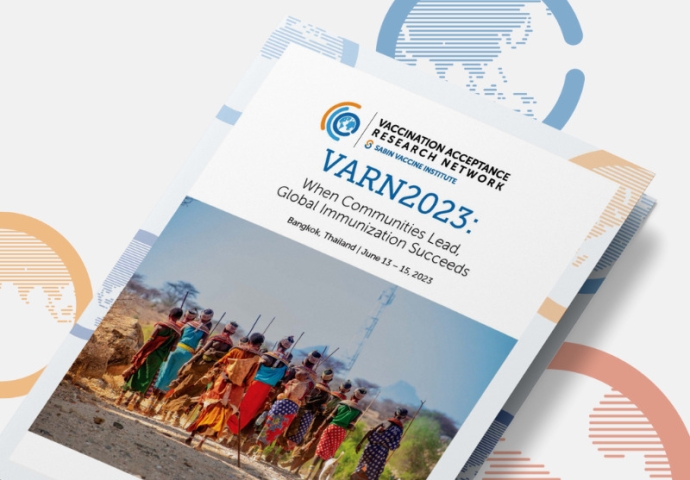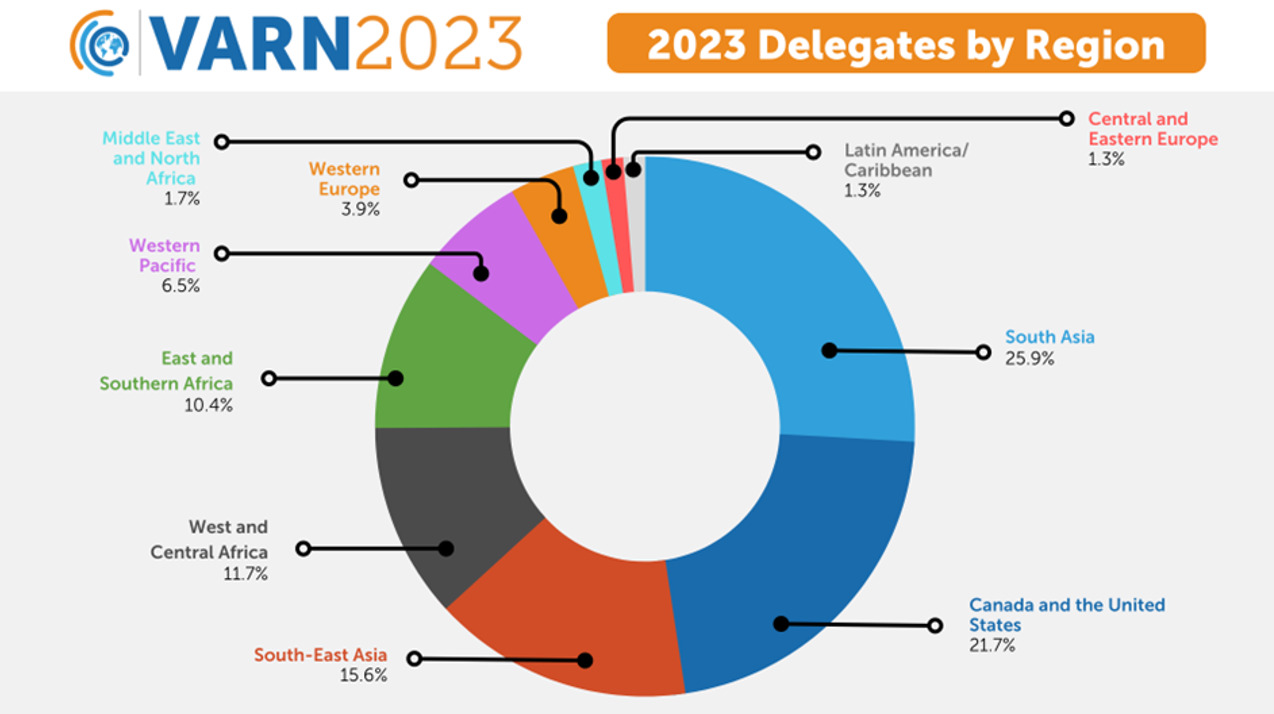VARN2023

The Sabin Vaccine Institute’s Vaccination Acceptance Research Network (VARN) hosted its second conference co-convened with UNICEF and co-sponsored by Gavi, the Vaccine Alliance and in support of COVID-19 Vaccine Delivery Partnership priority countries. VARN2023 was a space for exploration and wide dissemination of knowledge, practice, and evidence-informed strategies for driving action across the vaccination acceptance, demand, and delivery ecosystem.

Conference Report
The VARN2023 Conference Report is a comprehensive document summarizing the key findings and discussions from the 2023 Vaccine Acceptance Research Network (VARN) Conference held in Bangkok, Thailand, June 13-15, 2023. The report highlights the latest advancements, challenges, and strategies related to vaccine acceptance, demand, and delivery and should be a useful resource for public health professionals, researchers, and policymakers.

Presentations
Watch the recordings of all the sessions at VARN2023, including plenaries, concurrent sessions, and side events.

Posters
Explore the posters presented at the conference focused on four key themes: life-course vaccination, childhood essential immunization, social listening and combating misinformation, and demand generation.

Join VARN!
Our network is comprised of multidisciplinary and multi-sectoral professionals focused on surfacing evidence-based solutions from research and practice to optimize vaccine acceptance, demand, and delivery in low-resourced settings, which are critical to boosting vaccine uptake, public health, and economies.
VARN2023 Conference Report
Findings and insights from the Sabin Vaccine Institute’s VARN2023 conference
VARN2023 Conference Report (French)
Quand les communautés dirigent, l’immunisation mondiale réussit
VARN2022 Conference Report
Findings and insights from the Sabin Vaccine Institute’s inaugural VARN conference




